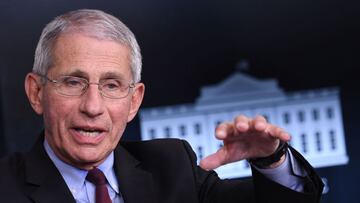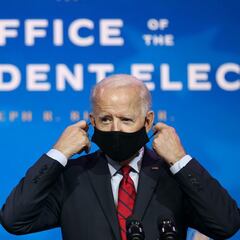How does the Trump administration plan to encourage Americans to take the covid-19 vaccine?
With first jabs the Trump administration is finally rolling out a $250 million vaccine education campaign to convince wary Americans to get inoculated.

Originally delayed by controversies, a long-delayed national effort to educate a portion of the American public hesitant about the safety of the coronavirus vaccine is getting under way. The administration is trying to make up for lost time after an earlier effort drew accusations of appearing to be election propaganda for President Trump.
The effort is further complicated by the missteps by the administration and Trump rhetoric throughout the fall. The vaccine like many other issues around the vaccine has become politicized. In addition to worries that remain due to the extraordinary speed with which the vaccine was developed through “Operation Warp Speed.”
The fraught start to the administration’s campaign
The initial campaign to build confidence in the covid-19 vaccine began back in September but ran into trouble when a $15 million contract to use celebrity voices to raise spirits and drive responsible pandemic behavior came under investigation by Congress. The politically tinged theme “helping the president will help the country,” was seen as campaign propaganda paid for with tax dollars in the run up to the election. Furthermore, documents by House Investigators, and published in the New York Times, showed that celebrities were vetted according to their political leanings.
Health and Human Services Secretary Alex Azar nixed the plan and ordered an internal review. Upon finishing the review, the program was put on hold for several weeks. However, now with the vaccine rollout underway the campaign has been restarted but it is under the gun to fine-tune the messaging with the focus groups to help tailor the advertising for hard-hit communities beginning Tuesday according to the New York Times.
Today is truly a historic day as we roll out the #COVIDVaccine. Having a vaccine is only the first step. We must now move from vaccines, to vaccinations. Excited to meet with the @NPHCHQ #DivineNine about the importance of building vaccine confidence in our communities. pic.twitter.com/up46tExUeP
— Dr. Vivek Murthy, U.S. Surgeon General (@Surgeon_General) December 15, 2020
What is in the Building Vaccine Confidence campaign?
The market research group behind the $250 million drive, Fors Marsh Group won the bid in September to develop the HHS proposal “defeat despair and inspire hope,” about the coronavirus pandemic. Mark Weber, the federal health official heading the initiative told the New York Times the revamped campaign will have a “science-based approach.” The campaign will target groups that are most at risk of catching the virus, like front line workers and minority communities, across a range of mediums such as TV, radio, print and social media.
The campaign will also focus the messaging on the “movable middle,” which is the group people who have their misgivings about the vaccine but can be swayed to get the jab. According to a recent Pew Research Center survey although the number of people who intend to get a coronavirus vaccine has gone up to 60 percent, there remains 21 percent who do not feel new information will change their mind about not getting the vaccine. This sentiment exists even among healthcare workers.
Related stories
Part of the work for Fors Marsh Group will be to track the uptake of the vaccine to see if the messaging is making a difference.
The first phase of the campaign has already started with “Tell Me More” videos from Dr. Fauci about the history and benefits of vaccination. This will be followed up by the “Slow the Spread” radio campaign set to begin in December. However the bulk of the campaign is still under development pending the focus groups set to begin Tuesday.


